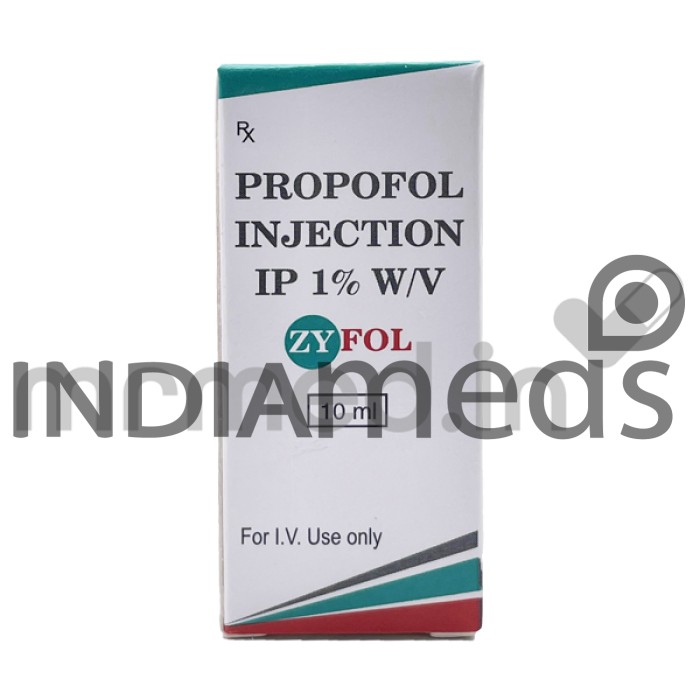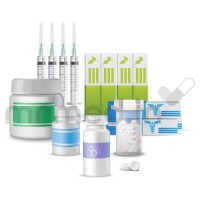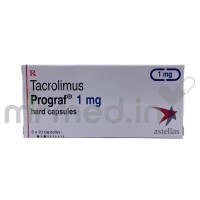Zyfol 10ml injection contains an active substance of propofol, which belongs to a class of medicines called general anesthetics. General anesthetics are used to cause unconsciousness (sleep) so that surgical operations or other procedures can be performed. They can also be used to sedate you (so that you are sleepy but not completely asleep). Zyfol 10ml injection is used to cause partial or complete reversible loss of consciousness (adult or child over the age of 1 month) so that surgical procedures can be performed. It can also be used to induce sleep in patients (16 years or older) receiving artificial respiration in an Intensive Care Unit (ICU).
Do not take this medication if you are allergic to propofol or its ingredients. Inform your doctor if you are allergic to peanuts or soya, as the medication contains soya oil. Before taking this medication, please inform your doctor, anesthetist, or nurse if you have a history of seizures, high blood fat levels, dehydration, or any other health conditions related to your heart, lungs, kidneys, liver, or if you have experienced prolonged illness or have been diagnosed with mitochondrial disease. Sharing this information with your doctor is vital to ensure your treatment plan is tailored to your unique medical needs and safety.
Therapeutic Effects of Zyfol Injection 10ml
Pregnancy
Zyfol 10ml injection can pass the placental barrier and cause miscarriage, birth defects, or neonatal depression during pregnancy. Hence, If you are pregnant, think you may get pregnant, or planning to have a baby, inform your doctor for advice before taking this medicine. Zyfol 10ml injection is given to you only when it is considered essential by your doctor.
Breast Feeding
Zyfol 10ml injection can be excreted into human breast milk and lead to neonatal depression if used during breastfeeding. Therefore, consult your doctor to determine when it's safe to resume breastfeeding while undergoing this medication.
Lungs
Zyfol 10ml injection is used with caution for severe breathing disorders. Before taking this medication, inform your doctor if you have any active lung disease.
Liver
Zyfol 10ml injection can cause enlargement of the liver very rarely. Hence, inform your doctor if you have mild/moderate/severe liver problems before taking this medication.
Alcohol
Drinking alcohol while using zyfol 10ml injection can make the sedation even stronger. So, it is not recommended to have alcohol unless your doctor says it is okay after the effect of the medicine has worn off.
Driving
Zyfol 10ml injection can affect your ability to drive and handle heavy machinery, so it is not recommended to drive until told by your doctor that the sleepy effect of the injection is gone.
Serious
- Allergic reactions - symptoms of difficulty in breathing, swelling of the eyelids, face, or lips, rash or itching (especially affecting your whole body)
- Stress cardiomyopathy - symptoms of chest pain, shortness of breath, nausea, or an irregular heartbeat, especially if you are stressed.
Common
- Injection site pain
- Low blood pressure
- Changes in your breathing pattern
- Slow heartbeat
- Nausea and Vomiting
- Headache
- Withdrawal symptoms - unusual behavior, sweating, shaking, and feeling anxious (in children)
- Flushing of the skin (in children)
It is essential to trust your medical team and communicate openly with them. Zyfol 10ml injection is a powerful anesthetic used to induce and maintain anesthesia, and while it is generally safe, it is crucial to disclose your complete medical history, allergies, and any medications you are taking to your healthcare provider. Follow their instructions diligently, and be sure to inform them about any unusual sensations or discomfort during the procedure. It is natural to feel apprehensive, but focusing on the expertise of your medical team and openly communicating your concerns with your doctor can help ensure a safer and more comfortable experience.
The effect of zyfol 10ml injection typically lasts for 24 hours, but this can vary from person to person, depending on the administered dose.
Zyfol 10ml injection is not recommended to maintain anesthesia in children under one month.
Adults and teenagers over 12 can eat solid foods and dairy products up to 8 hours before their hospital arrival time. Avoid alcohol within 8 hours of your appointment. You can have clear liquids, not dairy, up to 2 hours before surgery to stay hydrated.
It's important to avoid alcohol consumption during the treatment, as it may intensify the sedative effect. Additionally, do not operate a vehicle or heavy machinery since it causes severe drowsiness or dizziness, which may last several hours after the treatment.
As a sedative agent, zyfol 10ml injection injection can potentially increase dependence and be subject to abuse. It is strictly not meant for self-administration and should only be administered by a healthcare provider. When used beyond the therapeutic dose, it can be life-threatening.
No, zyfol 10ml injection is typically administered as an injection because most of it is processed by the liver when taken by mouth. So, the usual method for receiving zyfol 10ml injection is through an intravenous (IV) injection (into your veins) administered by a trained anesthesiologist.
Molecule Name: Propofol | Therapeutic class: General Anesthetics |
Pharmacological class: Sedative-hypnotic Agents | Indications: General Anesthesia |









